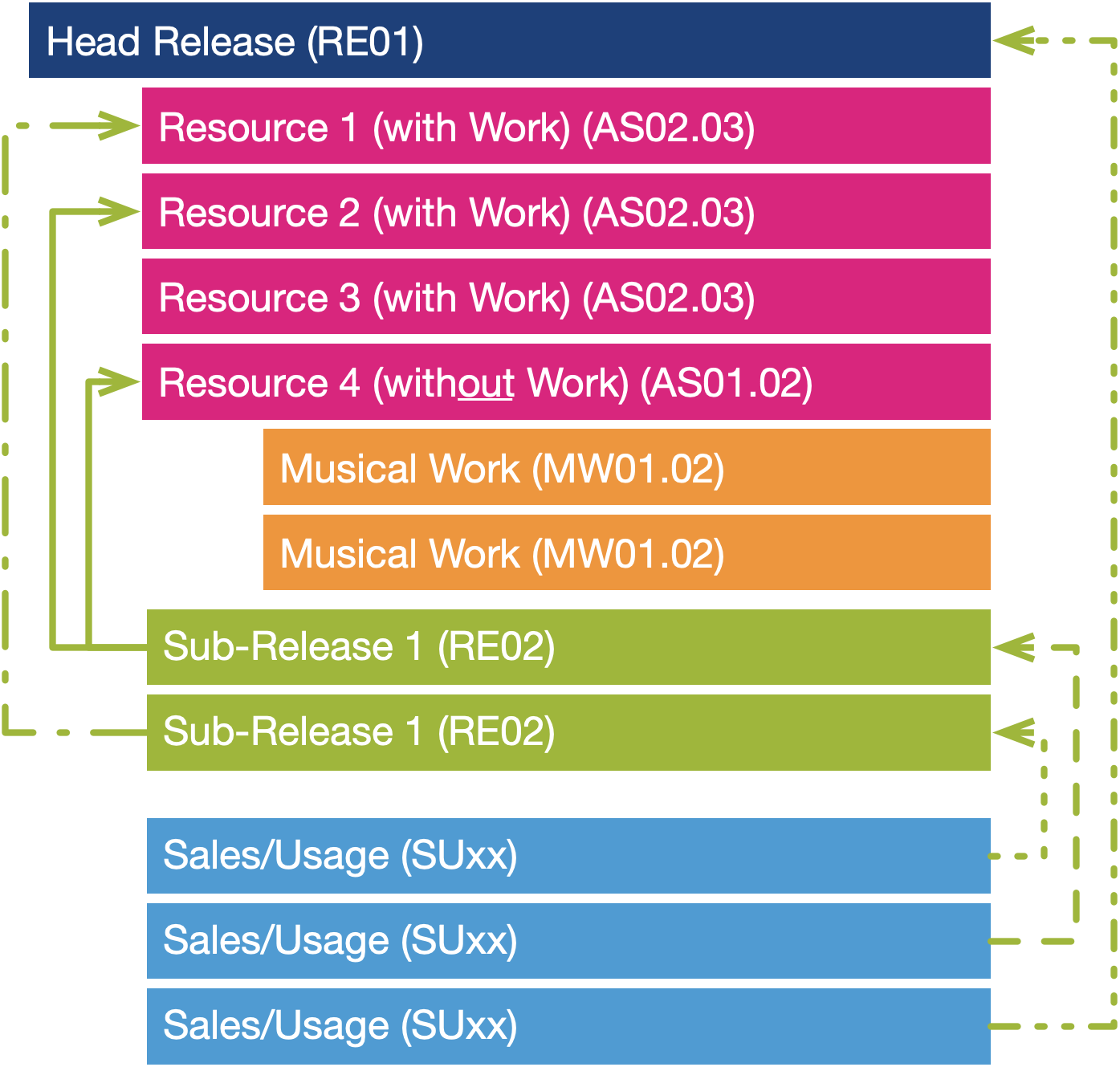Multi-Record and Single-Record Block Variants
DDEX has defined some of its profiles in two configurations:
Multi-Record Block Variants (MRBV) and
Single-Record Block Variants (SRBV).
How are the MRBV profiles structured?
In MRBVs each profile is made out of "blocks" which contain multiple records. A block in the Basic Audio Profile, for instance, is made up of:
One record of the release that has been transacted;
One or more records for each of the resources that make up the release;
None, one or multiple records for each of the resource records, describing musical works that are used in each of the resources;
Further records can then be used to describe “sub-releases”; and
Finally, records that provide different sales/usage information relating to the transacted release or resource.
This is depicted below for one of the profiles. When it comes to implementation, for most profiles the MRBV is the default version to use.
How are SRBV profiles different?
SRBVs collapse all of the information that would appear in an MRBV block into one single, albeit long, record. This makes the ingestion process simpler. Also, smaller SRBV files can more easily be imported into a spreadsheet application. These benefits do come at the cost of repeating a significant amount of information. MRBVs are therefore notably more efficient than SRBV.
How to choose between MRBV and SRBV?
The choice between whether to implement the MRBV and SRBV depends on multiple factors that sender and recipient need to weigh up, for example:
How large is the report likely to be?
Is it a problem if the report is, multiple times larger because of data repetition?
Is it important to easily import the sale/usage report into a spreadsheet application?
Are the sender and recipient able to handle the richer data structures of the MRBV?
Do the sender and the recipient need richer data structures, or is the SRBV structure sufficient?
For which profiles does an SRBV exist?
SRBVs exist for four of the profiles, namely:
The Financial Reporting to Record Companies Profile is only available as an SRBV.
